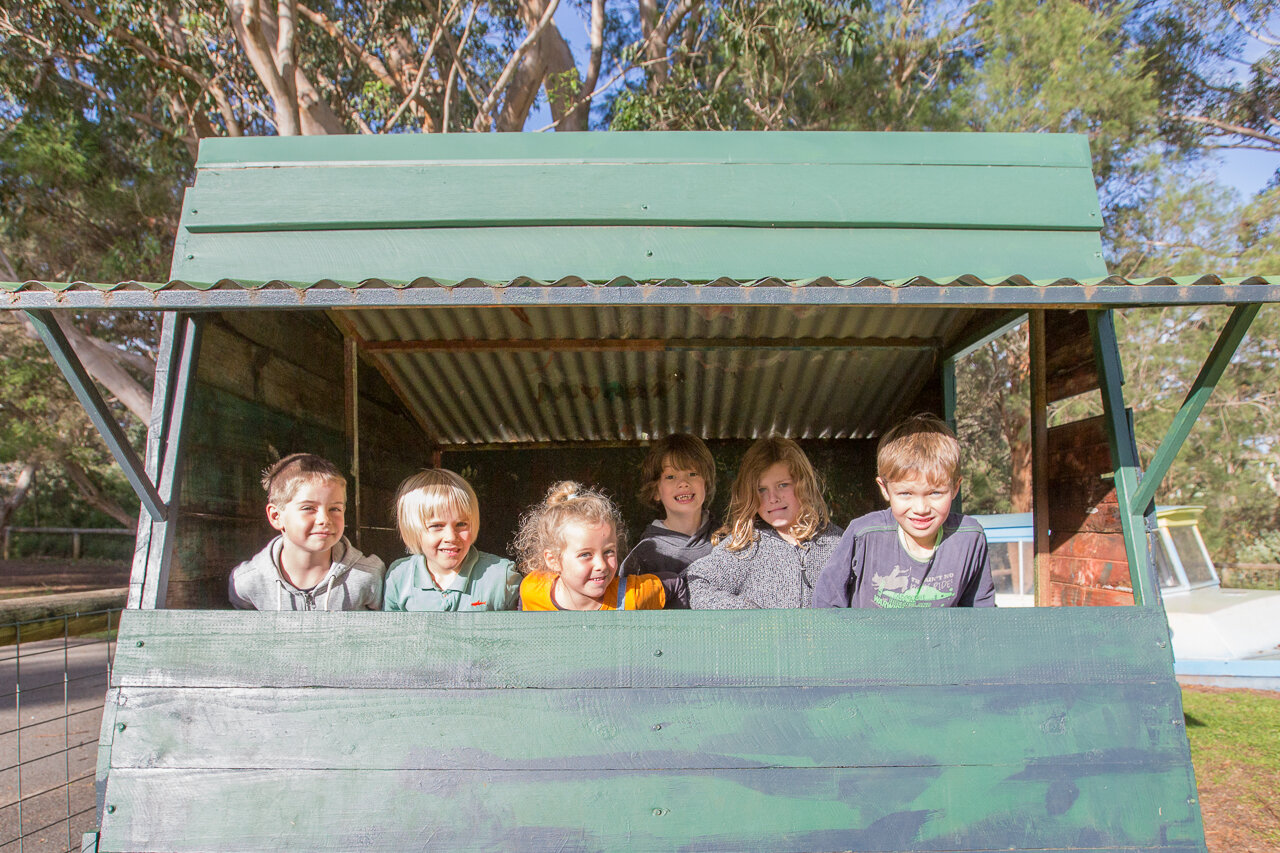The Importance of Play
Think back to when you were a child. If you grew up in Australia, you likely look fondly on a childhood spent running around with friends. Chasing games, hide and seek, and improvised adventure games have always been popular with kids of all ages. And on top of being lots of fun, play has stacks of benefits — in fact, it’s essential to healthy growth and development.
The play drought
Childhood development experts, like Pasi Sahlberg, Maggie Dent, Steve Biddulph, and Dr. Justin Coulson, have been fighting for childrens’ right to play for years. That’s because play has been proven to support your child’s growth, development, and ability to learn.
Physical development: active play, like running, climbing, dancing, ball games, and digging, improve your child’s coordination, confidence, and sense of wellbeing.
Social and emotional development: imaginative play, like dressing up and playing ‘pretend’ gives your child the chance to practice their social, negotiation, and empathy skills.
Literacy and numeracy: playing shops, school, or adventure games requires communication, critical thinking, problem solving, strength, and a host of other skills that form the basis of learning to read and write.
Here’s the problem: despite all the evidence, millions of Australian children aren’t being given the chance to play on a daily basis. Many schools, in an effort to improve learning outcomes, have sacrificed play for more time spent on literacy and numeracy.
This distinction between play and learning is at odds with our philosophy at Woodbury Boston. We know that children learn best when they’re happy and having fun — that’s why we integrate play into classroom activities. But it’s more than that.
If your child isn’t calm, relaxed, and focused, they simply cannot learn. And free, unstructured play is the best way to help them regulate and prepare their brains for learning.
The daily state of play
Each day, our bush playground is the backdrop for any number of games. Gang-up Chasey, Four Square, cubby building, and imaginative games are very popular among Woodbury Boston students. These games are creative, imaginative, physical, and engage critical thinking skills. And they help our students flourish — socially and academically.
We are pleased to see more experts vocally supporting childrens’ right to play. In fact, as early as 1989, the United Nations recognised it. Article 31 of the UN Convention on the Rights of a Child states:
Every child has the right to rest and leisure, to engage in play and recreational activities appropriate to the age of the child and to participate freely in cultural life and the arts.
The Woodbury Boston way
At Woodbury Boston, we pride ourselves on evidence-based teaching practice. And the evidence is clear: children need play. It is the most important factor in their social, emotional, cognitive, and academic development.
By giving our students ample play time, we support them to communicate, to be part of a community, to solve problems, and to cope with success and disappointment. We’re proud to add our voice to the growing chorus of educators and child development experts who are standing up for each child’s right to play.
If you’d like to learn more about how we integrate play into each day, we’d love to show you around — why not book a tour? Our Year 6 Carers will show you around (and they’ll keep you safe from whatever imagined Pokémon battles you encounter during your tour!) 😊
Recommended Reading
-
2023
- Jul 31, 2023 Benefits of STEAM in a nature-based learning environment Jul 31, 2023
- Jul 31, 2023 STEAM on campus: a student-designed outdoor classroom Jul 31, 2023
-
2022
- Sep 21, 2022 Here’s how we personalise your child's learning Sep 21, 2022
- Aug 8, 2022 What puppeteering taught the Koomals about Design Thinking Aug 8, 2022
- Jul 21, 2022 Dirty feet: here’s what our students learn in the bush Jul 21, 2022
- Jun 16, 2022 Notes from Nick: our Principal shares his experience Jun 16, 2022
- Jun 6, 2022 The Importance of Play Jun 6, 2022
- May 18, 2022 Meet Val May 18, 2022
- May 18, 2022 Peer Support: fostering student leadership May 18, 2022
- Feb 10, 2022 The Woodbury Boston difference: what does it mean to educate the Whole Child? Feb 10, 2022
- Feb 10, 2022 The 5 educational models that make up our teaching style Feb 10, 2022
-
2021
- Dec 13, 2021 In-school Orientation Day Dec 13, 2021
- Nov 4, 2021 Meet Nick: Philosopher and veteran educator Nov 4, 2021
- Oct 16, 2021 Celebrating 40 (+ 1) years of Woodbury Boston Oct 16, 2021
- Aug 6, 2021 Playgroup at Woodbury Boston welcomes parents and bubs Aug 6, 2021
- Jul 9, 2021 What a wonderful learning experience Jul 9, 2021
- Jun 23, 2021 Meet Whitney: rock star and memory keeper Jun 23, 2021
- May 30, 2021 Out and About May 30, 2021
- May 18, 2021 Here’s what our students learn during our whole-school concert May 18, 2021
- Mar 24, 2021 Parliament: Empowering students to use their voices Mar 24, 2021
- Feb 4, 2021 Wondering what we learn in kindergarten? Feb 4, 2021
- Feb 4, 2021 4 ways to prepare your child for school Feb 4, 2021
-
2020
- Nov 19, 2020 Out & About: learning in the real world Nov 19, 2020
- Nov 16, 2020 Here’s how to get involved at Woodbury Boston Nov 16, 2020
- Oct 29, 2020 IBL Part 2: Inquiry-based learning in action Oct 29, 2020
- Oct 29, 2020 IBL Part 1: 4 steps to inquiry-based learning Oct 29, 2020
- Sep 12, 2020 Meet Byron — teacher and adventurer Sep 12, 2020
- Sep 10, 2020 Camps and adventure at Woodbury Boston Sep 10, 2020
- Aug 6, 2020 Beyond early childhood: Nature based learning from K-6 Aug 6, 2020
- Jul 29, 2020 Brains and bellies: The importance of a nourishing lunch Jul 29, 2020
- Jul 29, 2020 Here's how to choose the best school for your child Jul 29, 2020
- Jul 28, 2020 Dirty feet: 4 ways bushwalks make our students smile Jul 28, 2020
Woodbury Boston Primary School is a progressive independent school nestled in the bush between Denmark and Albany WA. We know that children learn best when they’re happy and having fun. With a strong focus on community, respect, independence and nature-based teaching, our students learn the Western Australian Curriculum and so much more. For more information or to book a personal tour, please ring 9845 1185.




